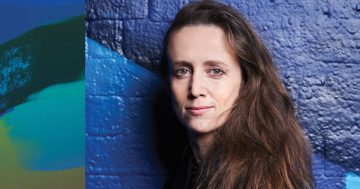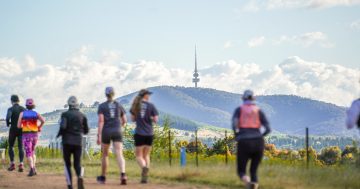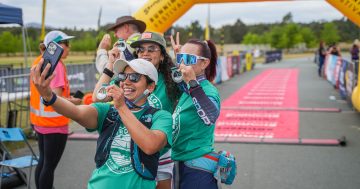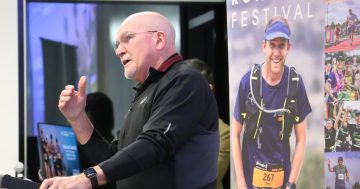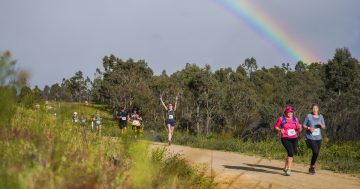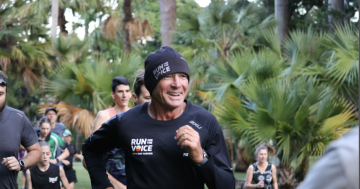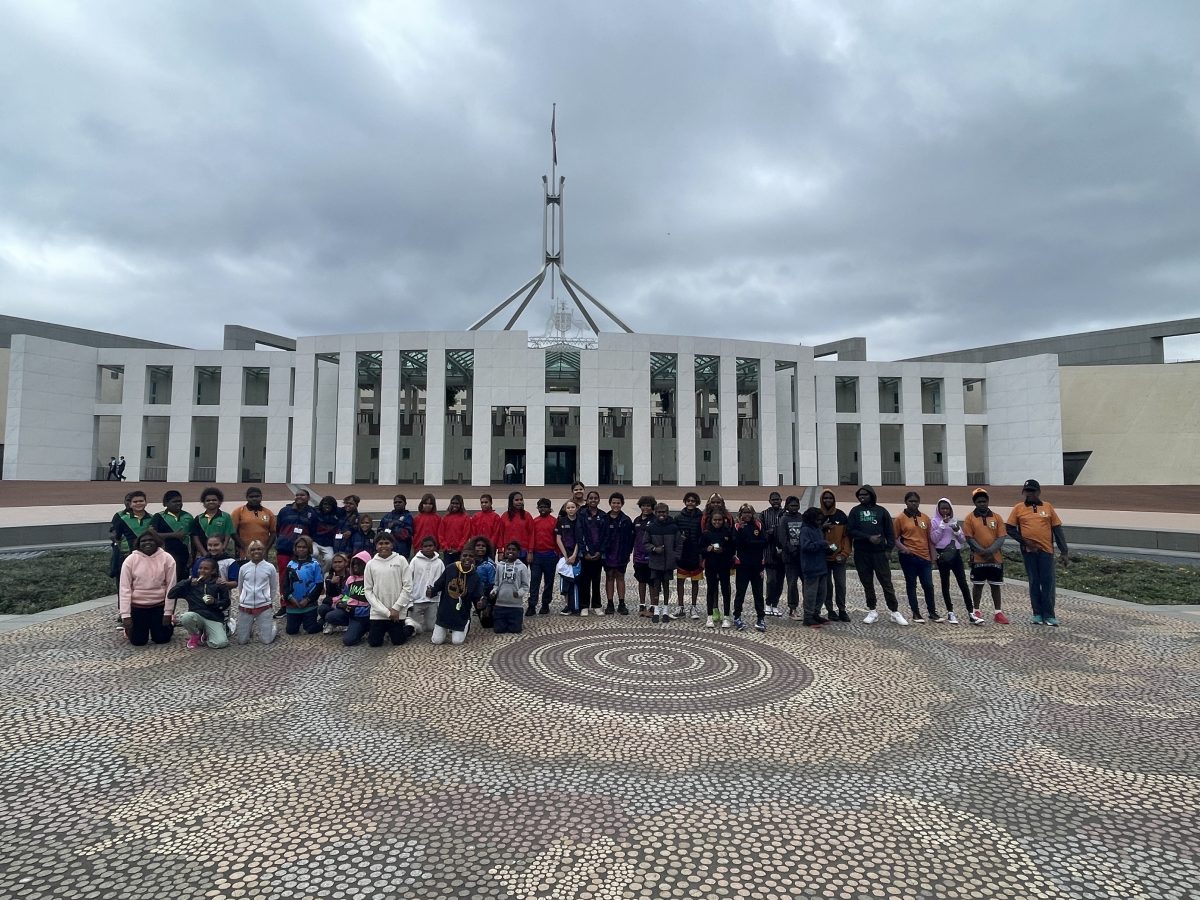
Young athletes from remote communities across Australia visit Canberra as part of the I-CAN program of the Indigenous Marathon Foundation. Photo: Supplied.
In 1982, Rob de Castella won the gold medal in one of the most absorbing marathons in Commonwealth Games history.
The following year, his legendary status in the sport was confirmed as he raced to victory to secure the World title in Helsinki.
His performance so inspired the nation that he was named Australian of the Year in 1983.
It could very well be argued that his role in promoting health, resilience and achievement in Australia’s Indigenous communities has been even more inspiring.
In 2009, he founded the Indigenous Marathon Project with the aim of promoting health and well-being in Indigenous communities through running, in particular, running marathons.
The actual act of running is underpinned by every participant working towards a purpose and building an understanding of relationships, resilience, empowerment and pride.
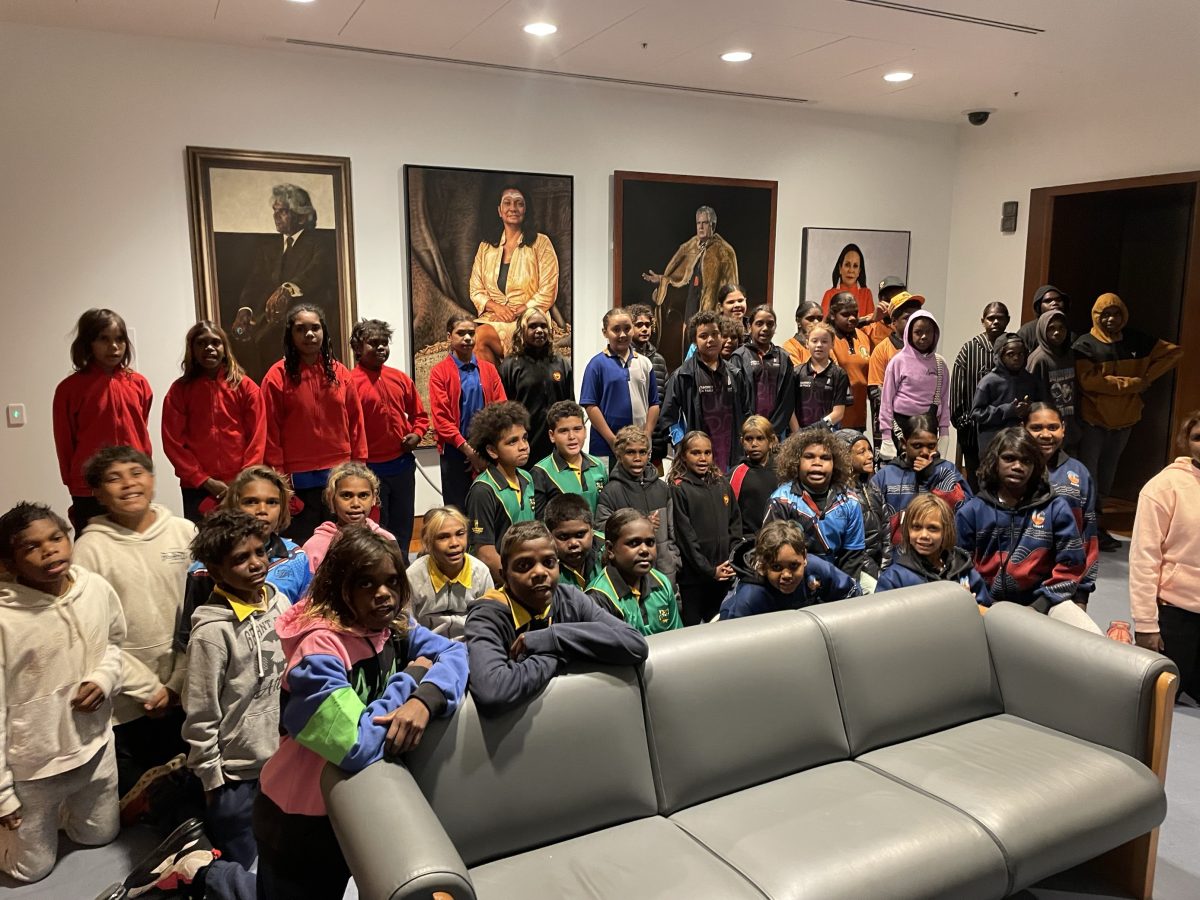
i I-CAN athletes were involved in educational experiences while in Canberra during the Stromlo Running Festival. Photo: Supplied.
Many who put their hands up to compete in the iconic New York Marathon had no prior running experience.
So far, 156 Indigenous marathon runners have graduated through the project. The satisfaction Deek gains from seeing his graduates progress is almost immeasurable.
“It’s more rewarding than my marathons. It’s far more important. What I did as an athlete, I did for myself. The Foundation is helping and inspiring Indigenous Australians. We focus on achievement, leadership and resilience. We address the issues faced by Indigenous Australians by building young emerging leaders.”
The Foundation covers all costs while education is compulsory, effectively covering a number of areas identified as being vital to influence their communities.
“We couldn’t do it without support,” says Deek. “We are doing all we can to raise funds. We are very appreciative of the support provided by the Federal Department of Health and the National Indigenous Australians Agency. We have also benefitted from philanthropy, which has enabled the Foundation to employ full-time officers in Cairns and Adelaide.”
Not content with identifying Indigenous athletes between the ages of 18 and 30 years, Rob has set his sights on the next generation.
The Stromlo Running Festival (16 to 17 November) showcased the next wave of Indigenous athletes, with the Foundation bringing to Canberra 52 Indigenous kids aged between nine and 12 years from a number of remote communities in Far North Queensland, the Northern Territory, Western Australia and South Australia to compete in the 2.5-kilometre run.
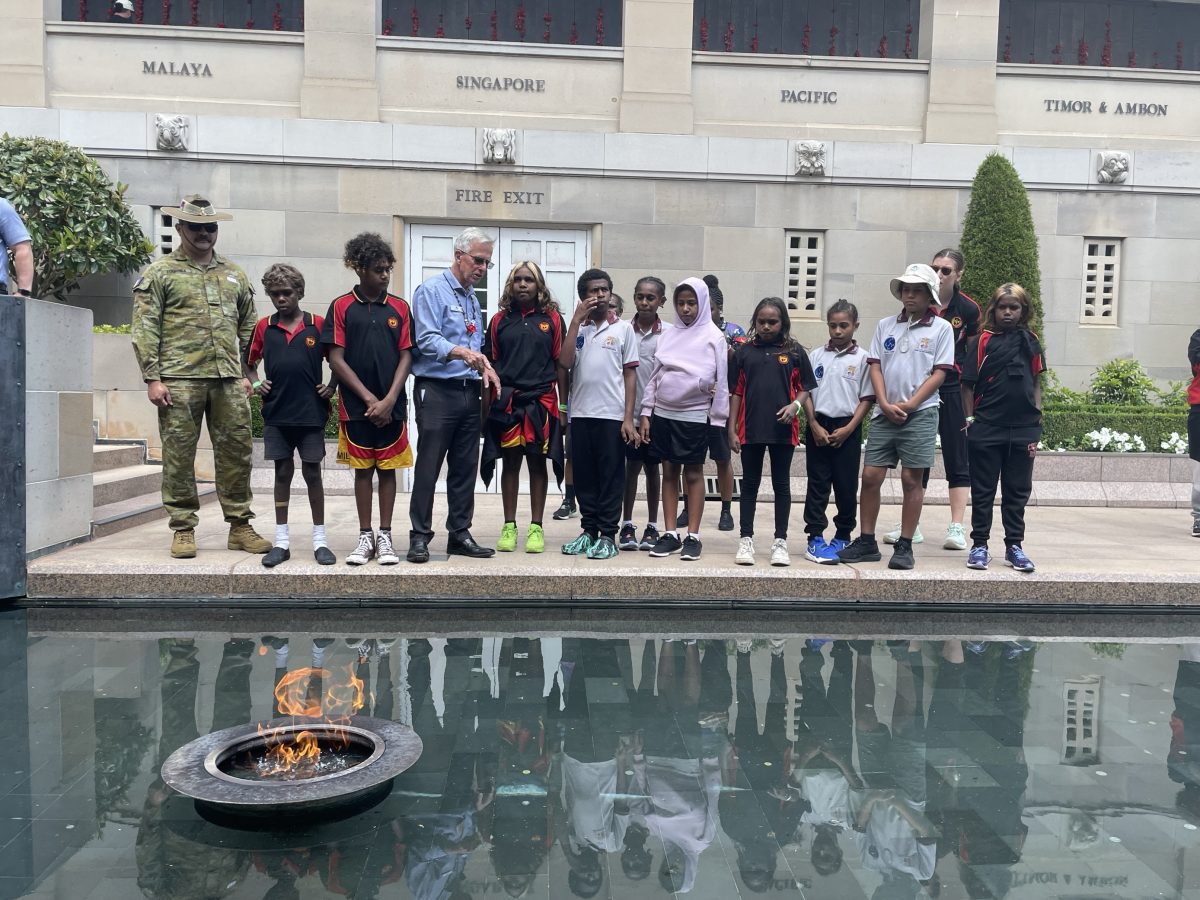
A new wave of athletes: Indigenous kids from remote communities enjoying Canberra for the Stromlo Running Festival. Photo: Supplied.
But it was more than a run for these young athletes and their teachers who chaperoned them during their stay in Canberra. There were also 27 run leaders coaching and educating.
“We had representatives from every remote community in Australia here in Canberra over the weekend. We had groups from opposite ends of the country talking to each other about their communities. They visited Parliament House and saw portraits of Indigenous politicians. They also went to the War Memorial. It’s life-changing for these kids. It’s also just as important for the kids’ teachers to see what is happening outside their communities.”
They were also mentored by IMF legends Charlie Maher, who has run in all six major marathons around the world, and Adrian Dodson-Shaw, who in 2015 became the first Australian Indigenous person to complete the North Pole marathon.
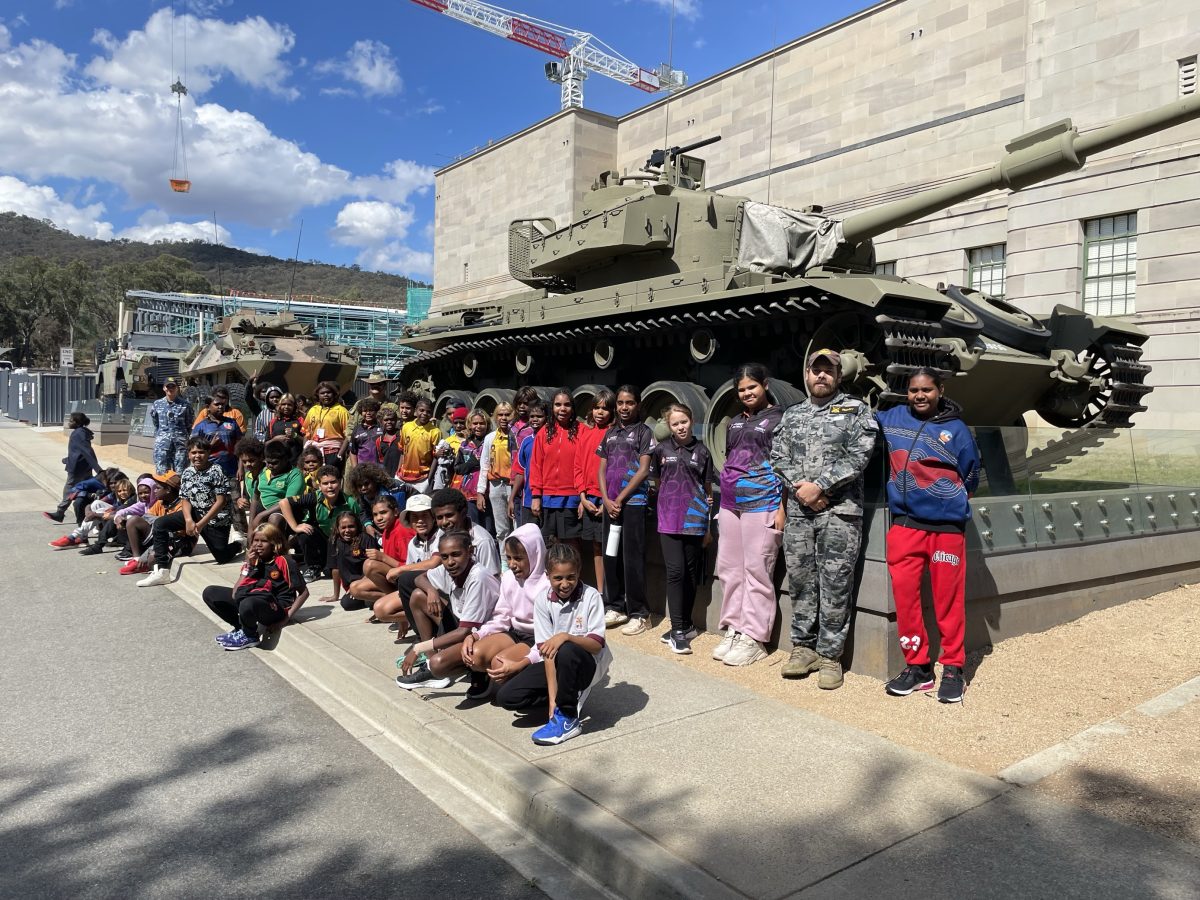
Visiting the War Memorial as part of the educational experience for I-CAN athletes. Photo: Supplied.
Education is a key component in the selection for the Canberra trip, based not so much on running ability but on school attendance and community involvement.
Deek’s new challenge is establishing running clubs in remote communities throughout Australia.
We should all be grateful that Rob de Castella is showing no signs of slowing down as he helps young Australians reach their potential.











